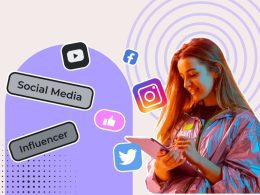Introduction
The landscape of content creation has evolved dramatically over the past decade, influenced by rapid technological advancements and changing consumer preferences. As we look ahead, the future of content creation promises to be even more dynamic, with significant implications for both DIY (Do-It-Yourself) creators and professional content producers. This article delves into the key trends, challenges, and opportunities that will shape the future of content creation, focusing on the dichotomy between DIY and professional approaches.
The Rise of DIY Content Creation

1. Technological Empowerment
The proliferation of affordable, high-quality recording equipment and editing software has democratized content creation. Today, anyone with a smartphone can produce and distribute content that rivals professional standards. Platforms like YouTube, TikTok, and Instagram have further enabled this trend by providing easy-to-use tools for content creation and distribution.
2. Creative Freedom
DIY content creators enjoy unparalleled creative freedom. They can experiment with different formats, styles, and genres without the constraints often imposed by professional settings. This freedom has led to the emergence of unique and diverse content that resonates with niche audiences.
3. Monetization Opportunities
Monetization avenues for DIY creators have expanded significantly. From ad revenue and sponsorships to crowdfunding and merchandise sales, DIY creators have multiple streams of income at their disposal. This financial viability has made DIY content creation a sustainable career option for many.
The Professional Content Creation Landscape

1. High Production Value
Despite the rise of DIY content, professional content creation remains indispensable for projects requiring high production value. Hollywood films, high-budget TV shows, and corporate videos often necessitate the expertise, equipment, and resources that only professional studios can provide.
2. Structured Workflow
Professional content creation involves a structured workflow, from pre-production planning and scripting to post-production editing and distribution. This structured approach ensures consistency, quality, and adherence to deadlines, which are crucial for large-scale projects.
3. Audience Trust and Credibility
Professional content creators often have established reputations and industry connections that lend credibility to their work. This trust can be particularly important for brands and organizations looking to engage with their audience in a meaningful way.
Blurring the Lines: Hybrid Models
1. Collaborative Efforts
The future of content creation is likely to see increased collaboration between DIY creators and professional studios. For instance, a DIY creator with a large following might partner with a professional studio to produce a high-quality series, combining creative freedom with professional expertise.
2. Technological Integration
Advancements in technology, such as AI-driven editing tools and virtual production techniques, are making it easier for DIY creators to achieve professional-level quality. Conversely, professionals are adopting agile, cost-effective methods inspired by the DIY ethos, leading to a hybrid model of content creation.
3. Platform Evolution
Content distribution platforms are evolving to cater to both DIY and professional creators. For example, YouTube offers both user-generated content and professionally produced shows, while Netflix is exploring user-generated content to complement its professional offerings.
Challenges and Considerations

1. Quality vs. Quantity
One of the primary challenges in the future of content creation will be balancing quality and quantity. While DIY creators can produce content rapidly, maintaining high standards can be challenging. Professionals, on the other hand, may struggle to produce content quickly enough to meet audience demands.
2. Monetization and Sustainability
Both DIY and professional creators will need to navigate the complexities of monetization in an increasingly competitive landscape. Diversifying income streams and adapting to new monetization models will be crucial for long-term sustainability.
3. Ethical and Legal Concerns
As content creation becomes more accessible, ethical and legal issues such as copyright infringement, misinformation, and data privacy will become more prominent. Both DIY and professional creators will need to adhere to ethical guidelines and legal regulations to maintain credibility and trust.
4. The Importance of Community
For both DIY and professional creators, building and maintaining a community is crucial to long-term success. Audiences today are more connected and engaged than ever before, and creators who can cultivate a loyal following are more likely to thrive. This means that both DIY and professional creators need to focus on interacting with their audience, understanding their preferences, and delivering content that resonates.
Social media, live streaming, and direct fan engagement through platforms like Discord or Patreon can help creators build strong communities. For professional creators, this might also involve tapping into existing fan bases or leveraging the brand power of established media franchises.
5. The Role of Technology
Looking ahead, technology will continue to play a pivotal role in shaping the future of content creation. AI, augmented reality (AR), virtual reality (VR), and other emerging technologies offer new possibilities for both DIY and professional creators. AI-driven tools can assist with everything from editing to audience analysis, while AR and VR offer immersive new formats for storytelling.
As these technologies become more accessible, they will likely further blur the lines between DIY and professional content, enabling creators of all levels to experiment with new formats and reach new audiences.
Conclusion
The future of content creation will be characterized by a dynamic interplay between DIY and professional approaches. While technological advancements and changing consumer preferences will continue to empower DIY creators, the expertise and resources of professional studios will remain invaluable for high-quality productions. By embracing hybrid models, fostering collaboration, and navigating emerging challenges, both DIY and professional creators can thrive in the evolving landscape of content creation.
In this ever-changing environment, the key to success will be adaptability, creativity, and a keen understanding of audience needs. As we move forward, the future of content creation promises to be an exciting and transformative journey for all involved.












